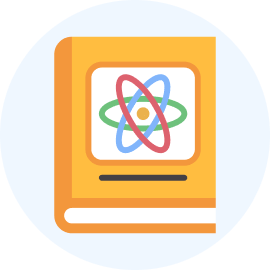GATE Physics Exam > GATE Physics Videos > Quantum Mechanics for GATE > Lecture 3: Tools of Quantum Mechanics
Lecture 3: Tools of Quantum Mechanics Video Lecture | Quantum Mechanics for GATE - GATE Physics
FAQs on Lecture 3: Tools of Quantum Mechanics Video Lecture - Quantum Mechanics for GATE - GATE Physics
| 1. What are the fundamental principles of quantum mechanics? |  |
Ans. Quantum mechanics is based on principles such as superposition, entanglement, and the uncertainty principle. Superposition states that particles can exist in multiple states simultaneously until measured, while entanglement describes the connection between particles regardless of distance. The uncertainty principle states that certain pairs of physical properties, such as position and momentum, cannot both be precisely determined at the same time.
| 2. How does quantum mechanics differ from classical mechanics? |  |
Ans. Quantum mechanics differs from classical mechanics in that it describes the behavior of particles at the smallest scales, such as atoms and subatomic particles, where classical mechanics fails to accurately predict their behavior. Quantum mechanics introduces concepts like wave-particle duality and quantization of energy levels, which are not present in classical mechanics.
| 3. What is wave-particle duality in quantum mechanics? |  |
Ans. Wave-particle duality is the concept that particles, such as electrons, can exhibit both wave-like and particle-like properties. This means that particles can behave as waves with properties like interference and diffraction, as well as exhibit particle-like behavior with localized positions and momenta. This duality is a fundamental aspect of quantum mechanics.
| 4. How does quantum mechanics explain the behavior of atoms and molecules? |  |
Ans. Quantum mechanics explains the behavior of atoms and molecules by providing a framework to understand their energy levels, electron configurations, and chemical properties. Concepts such as quantization of energy levels, electron wave functions, and probabilistic nature of electron positions help explain phenomena like atomic spectra and chemical bonding.
| 5. What are some practical applications of quantum mechanics? |  |
Ans. Quantum mechanics has several practical applications, including quantum computing, quantum cryptography, and quantum sensors. Quantum computers use quantum bits or qubits to perform calculations exponentially faster than classical computers. Quantum cryptography ensures secure communication using quantum principles. Quantum sensors can achieve high sensitivity and precision in measuring physical quantities like magnetic fields and temperatures.
Related Searches




















